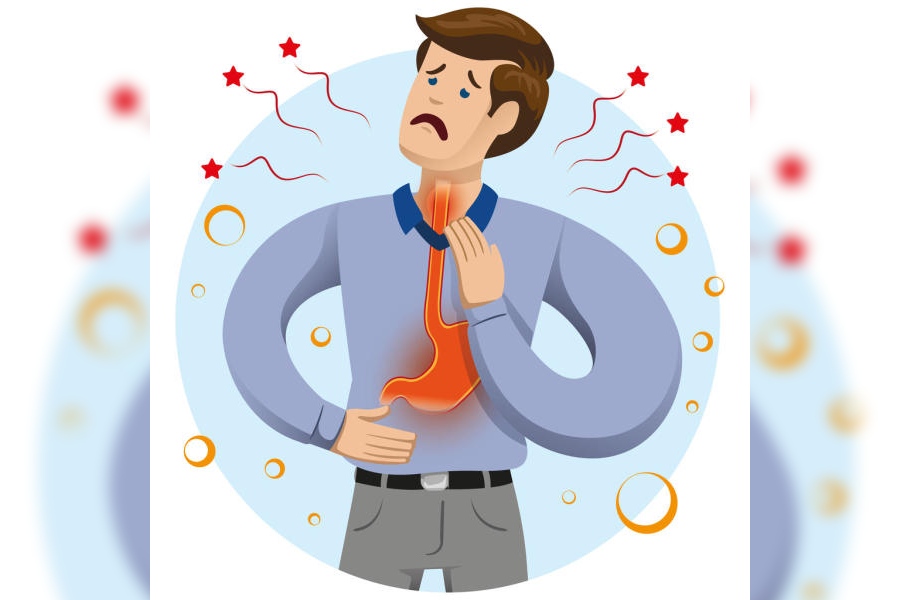People of all ages (including children) may suddenly complain of severe pain in the centre of the chest. Panic sets in. “Is this a heart attack? Is death imminent?”
Many times, these symptoms are not caused by heart problems but by acid regurgitation from the stomach into the food pipe or oesophagus.
Food passes down the food pipe to the stomach. At the junction of the pipe with the stomach, there is a sphincter-like valve to prevent stomach contents from flowing back upwards into the mouth. The anatomy of this structure can be deformed because a person is pregnant or obese and has a large pot belly, has eaten a large meal or lies down immediately after eating food.
The stomach contains acid to digest food. If these acidic contents pass upwards into the food pipe (oesophagus), it can produce typical symptoms like sudden burning in the chest or severe pain. The pain is centrally located and does not radiate. There may be hoarseness of voice, an irritating cough that worsens at night, a need to constantly clear the throat, a feeling of food coming back or a sour taste in the mouth. The regurgitation may also produce halitosis (bad breath).
Overeating spicy or preservative-laden foods may precipitate acid reflux or a burning chest. It may then occur only once or twice a month. If this happens more than 3-4 times weekly with agonising regularity, the symptoms have to be taken seriously. Please don’t ignore it and self-medicate by swallowing antacid mixtures.
The diagnosis of GERD (gastro-esophageal reflux disease) may be missed initially. The patient may consult various specialists, depending on the predominant symptom. He or she may see a dentist for bad breath, an ENT surgeon for throat pain and cough, and a pulmonologist or a cardiologist for chest pain.
Investigations to diagnose GERD include endoscopy or X-rays of the upper gastrointestinal (GI) tract, tests to measure the acid in the oesophagus, the strength of its sphincter and of the junction to the stomach. An ECG and echocardiogram may be taken to evaluate the heart.
GERD affects almost 15 per cent of the population at some point in their lives. Doctors have not found a single factor that causes it, but it does tend to run in families and appears to have a genetic link.
If your abdominal girth has increased due to pregnancy or because of obesity, until that problem is rectified, you can develop frequent attacks of GERD. The chemicals in tobacco weaken the lower oesophagal sphincter, so stomach contents can easily flow back into the oesophagus. Smoking also reduces saliva production, which helps neutralise stomach acid. Carbonated drinks, fatty food and large meals also exacerbate GERD.
Many non-prescription drugs can be taken for GERD. Antacids that neutralise stomach acid are effective if taken an hour after food and if they are refrigerated. Omeprazole, ranitidine and other acid-production blockers can also be taken. However, long-term unsupervised use can cause bowel disturbances and malabsorption of vitamins.
Some lifestyle modifications can also help.
• Do not lie down for at least an hour after eating, and keep the head end of the bed elevated
• Drink 3-4 litres of water daily
• Eat small, timely, frequent meals instead of three large ones
• Reduce or avoid intake of milk and dairy products. However, consume 30ml of homemade curd on an empty stomach in the morning. This will provide a protective coat for your stomach and oesophagus and ensure you get helpful natural probiotics
• Do not use tobacco products
• Avoid alcohol
• Reduce consumption of tea and coffee
• Walk for 30 minutes daily and do deep breathing exercises.
The writer has a family practice at Vellore and is the author of Staying Healthy in Modern India. If you have any questions on health issues please write to yourhealthgm@yahoo.co.in

